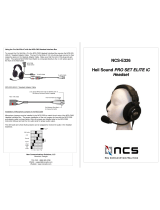
• The system ground is the power supply and chassis ground.
• Use the grounding lug to attach a wrist strap for ESD protection during servicing.
• Do not connect the DC return wire to the system frame or to the system-grounding equipment.
• Ensure that the DC return is grounded at the source side.
Guidelines for AC-Powered Systems
Basic guidelines for AC-powered systems include the following:
• Each chassis power supply has its own dedicated branch circuit.
• Ensure that the circuit breaker is sized according to the power supply input rating and local or national
code requirements.
• The AC power receptacles that are used to plug in the chassis must be the grounding type. The grounding
conductors that connect to the receptacles must connect to protective earth ground at the service equipment.
Prevent Power Loss
Use the following guidelines to prevent power loss to the device:
• To prevent input power loss, ensure that the maximum load on each circuit supplying the power is within
the current ratings of the wiring and breakers.
• In some systems, you can use an UPS to protect against power failures at your site. Avoid UPS types
that use ferroresonant technology. These UPS types can become unstable with systems such as the device,
which can have substantial current-draw fluctuations due to bursty data traffic patterns.
Determining power requirements is useful for planning the power distribution system to support the device.
Preventing ESD Damage
Ground this equipment. Use a green and yellow 6-AWG ground wire to connect the host to earth ground
during normal use. Statement 383
Warning
Electrostatic Discharge (ESD) can damage equipment and impair electrical circuitry. ESD may occur when
electronic printed circuit cards are improperly handled and can cause complete or intermittent failures. When
removing and replacing modules, always follow these ESD prevention procedures:
• Ensure that the device chassis is electrically connected to earth ground.
• Wear an ESD-preventive wrist strap, ensuring that it makes good skin contact. To channel unwanted
ESD voltages safely to ground, connect the clip to an unpainted surface of the chassis frame. To guard
against ESD damage and shocks, the wrist strap and cord must operate effectively.
• If no wrist strap is available, ground yourself by touching a metal part of the chassis.
• When installing a component, use any available ejector levers or captive installation screws to properly
seat the bus connectors in the backplane or midplane. These devices prevent accidental removal, provide
proper grounding for the system, and help to ensure that bus connectors are properly seated.
• When removing a component, use available ejector levers or captive installation screws, if any, to release
the bus connectors from the backplane or midplane.
Cisco NCS 520 Hardware Installation Guide
7
Safety Warnings
Guidelines for AC-Powered Systems




















